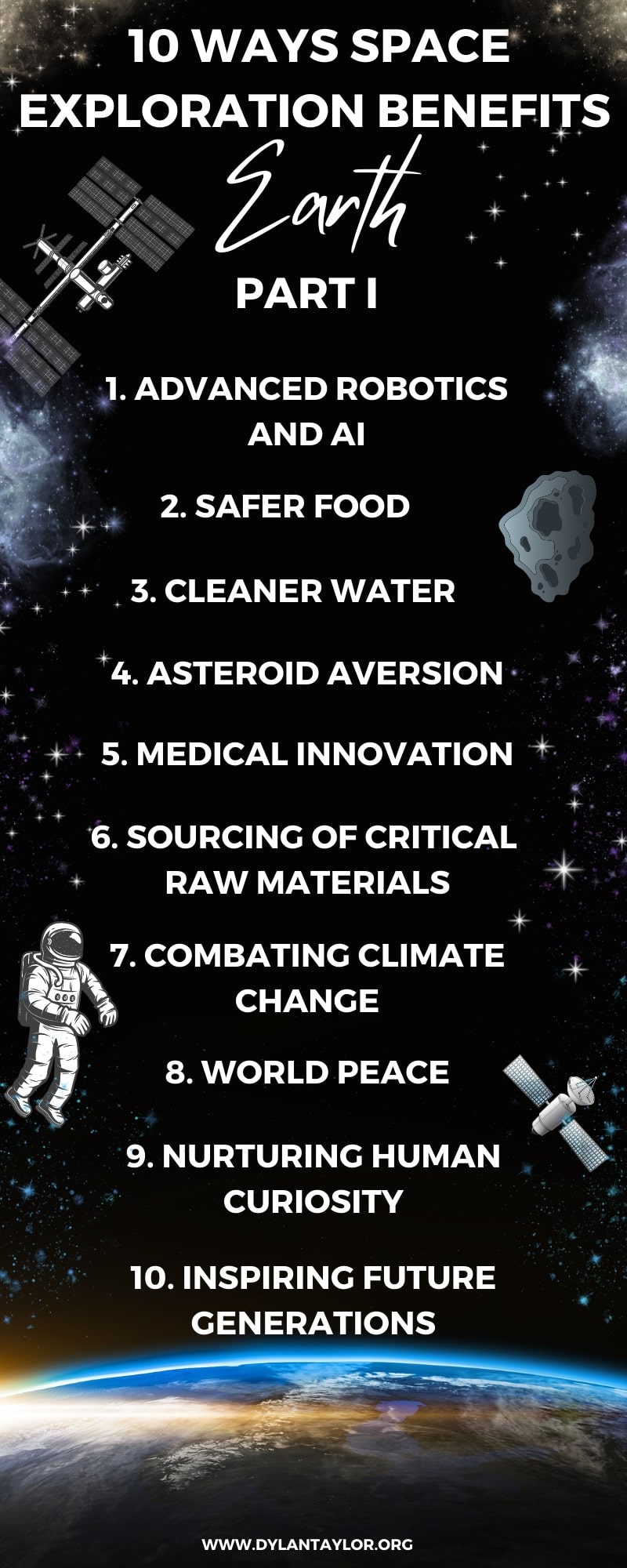When we think about space exploration, it’s not uncommon to imagine glorious spectacles of blue-marbled Earth or orange-glowing galaxies stationed billions of lightyears away. We think of the vast expense of endless stars but rarely consider how it impacts our lives here on Earth.
As humanity works to discover what lies far beyond Earth’s orbit, we synergistically improve the lives of the beings existing beneath it. As we launched the first satellites into space, to first get our sea legs in the ether, that knowledge and capability enabled the GPS constellation, accurate weather forecasting and modern telecommunications. Three technologies our modern day civilization could not live without.
Space exploration has played a crucial role in the innovation and advancement of humanity for decades. Still, as technology (and let’s face it, billionaire funding) continues to evolve, the benefits of investing in space exploration have never been more apparent. Let’s look at how space exploration benefits our home planet.
1. Advanced Robotics and AI
Space, and everything outside of Earth’s atmosphere, is a harsh environment. Robots and AI are our mechanisms of exploration, and the best minds are always at work developing the technology that allows us to roam the surface of Mars and beyond. Those same technologies trickle down to be used on the third planet as well, from supporting mobility for disabled persons to aiding in search and rescue efforts.
2. Safer Food
The challenge of providing safe, contaminant-free food for astronauts was a vast undertaking that led to some pretty unconventional methods (space ice cream just doesn’t hit quite the same). The Hazard Analysis and Critical Control Point concept that Pillsbury developed for NASA to eliminate microorganism contamination aboard spacecraft is now used by the FDA to ensure the safety of store-bought foods.
3. Cleaner Water
One of the most significant contributions space exploration has given planet Earth comes in liquid form. The need to properly filter water for space travelers prompted NASA to develop a way to filter water in a simple, portable manner efficiently. As a result, inexpensive, easy-to-use water filtration systems were designed and used worldwide to provide clean drinking water or grow crops in otherwise barren soil.
4. Asteroid Aversion
Earth-bound asteroids are nothing to scoff at; ask any prehistoric creature. The truth is, the collision of Earth with any meteor any larger than 100 meters across would cause an apocalyptic disaster. Attentive space presence and the actual existing technology of spacecraft-driven nuclear explosions could be enough to keep humankind from experiencing the same fate as our mammoth predecessors.
5. Medical Innovation
Aboard the International Space Station, astronauts have been able to experiment with and finetune medical innovations that have transformed healthcare on Earth. From life-saving cancer treatments to delicate robotic surgery performed inside an MRI machine, the future of advanced medicine is happening in conjunction with space exploration.
6. Sourcing of Critical Raw Materials
We already know that meteorites deliver rare, often unheard of metals and elements to Earth or leave dustings of gold across their paths. But other rare earth elements can be found as close by as the moon. Helium-3, for example, is used for some specific MRIs and is a potential fuel for nuclear power plants. Like europium and tantalum, other elements are used in advanced electronics and solar panels.
7. Combating Climate Change
One of the primary challenges of space travel is the removal of carbon dioxide from the air in space stations and planetary outposts. As powerful brains get to work on cleaning the air aboard spacecraft, we’re learning more about how we could potentially reduce the presence of the same damaging compound in our environment. Additionally, satellites that circle our home planet can provide precise data that helps us understand and moderate climate change.
8. World Peace
The International Space Station has hosted astronauts and spacecraft from eighteen countries during its time in orbit. Space exploration may be the key to international cooperation, forging greater trust and stronger diplomatic relationships between otherwise distant countries. Just recently, this international cooperation has been strained due to the conflict in Ukraine, but so far those ties have bent, not broken and there are reasons to be hopeful that the international partnership will continue to endure and inspire.
9. Nurturing Human Curiosity
Human beings are naturally curious creatures, and our desire to explore and learn sets us apart from other life on Earth. Space exploration paints an insightful picture of our small place in the universe and gives us a glimpse of inexplicable magic. With each new galaxy discovered and every black hole detected, our human curiosity is satisfied and propelled and keeps us asking, Is there another life out there in the universe?
10. Inspiring Future Generations
As the youngest person to ever fly to space joined a SpaceX mission, kids worldwide suddenly saw an impossible dream become a reality. Space travel is no longer pure science fiction or just for the lucky few. For the first time in human history, children can see the possibility of experiencing space, encouraging science education and careers that will build a global capacity for astonishing innovation.
While space exploration is largely about discovering the unknown frontier, its pursuit has proven beneficial for so many facets of our life here on Terra Firma. In fact, those glowing rockets jetting into the atmosphere have a greater impact on our daily lives than many of us realize.







